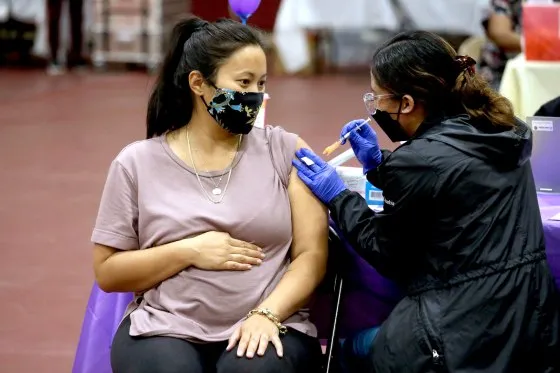Introduction
The COVID-19 pandemic has been the subject of intense discussion, research, and debate since it first emerged in late 2019. As various vaccines were developed and distributed, public health agencies, including the Centers for Disease Control and Prevention (CDC), provided guidelines on who should receive these vaccines. In recent statements, Robert F. Kennedy Jr. (RFK Jr.), an environmental attorney and vaccine skeptic, has made assertions regarding the recommendations for COVID-19 vaccinations, particularly concerning children and pregnant women. This article explores the implications of these claims, the evolving nature of vaccine recommendations, and the response from public health officials.
Understanding the Vaccine Landscape
Initially, the COVID-19 vaccines were heralded as a critical tool in curbing the spread of the virus and preventing severe disease. Endorsed by numerous health authorities worldwide, the vaccines received emergency use authorization and were rapidly distributed. As more became known about COVID-19’s effects on different demographics, the CDC continuously updated its recommendations.
Children and pregnant women were initially part of the vaccination strategy, primarily because the vaccines were shown to minimize the risk of severe illness. However, as data emerged on the efficacy of vaccines in various populations, including those at lower risk (such as healthy children), health guidelines began to shift.
RFK Jr.’s Statements and the Shift in Recommendations
Recently, RFK Jr. has purported that the CDC has dropped COVID-19 shots from its recommended list for children and pregnant women. This assertion has garnered significant attention and raised questions about the motivations behind such statements.
In an interview, RFK Jr. claimed that the CDC no longer recommends COVID-19 vaccinations for healthy kids and pregnant women, aligning with his long-standing skepticism of vaccines. This created a fracas, as many critics argue that RFK Jr.’s interpretations can mislead the public.
The CDC’s Position and Public Reaction
While RFK Jr. claimed the CDC has officially changed its recommendations regarding vaccinations for these groups, the reality is more nuanced. The CDC has adjusted guidance on COVID-19 vaccinations based on ongoing research and data assessments. For example:
- Children: Initially, the CDC recommended COVID-19 vaccination for children aged 5-11. Over time, the data regarding hospitalizations and severe illness rates indicated that healthy children were generally at lower risk from COVID-19, leading the agency to reconsider the necessity of vaccination for this group.
- Pregnant Women: The CDC initially recommended COVID-19 vaccines for pregnant individuals to prevent severe outcomes. However, as variants and booster shots were introduced, a more cautious approach emerged, emphasizing the need for individualized risk assessments.
The adjustments were based on scientific evidence, comprising a range of data sources that informed a wider understanding of COVID-19 impacts. Critics like RFK Jr. may misrepresent these changes to suggest a blanket dismissal of vaccines, which is not the case.
Scientific Evidence Behind the Recommendations
To better grasp the rationale behind the CDC’s shifting recommendations, one must look at the scientific evidence that guides public health decisions. COVID-19 vaccines were primarily developed to reduce hospitalization and death rates among populations at high risk.
For children, studies showed that while the risk of extreme reactions from COVID-19 was lower, hospitalization could still occur, albeit at a smaller scale. The very basis of pediatric COVID-19 vaccination has remained to reduce transmission and protect community health—not solely individual health.
In contrast, some studies have emerged suggesting that the risks associated with vaccination during pregnancy, particularly in terms of adverse effects, should be weighed against potential benefits. Public health officials emphasize the importance of consulting healthcare providers to ensure informed decision-making suited to individual circumstances.
The Role of Misinformation in Public Perception
Misinformation around vaccines has been rampant, fueled by social media platforms, and figures like RFK Jr. have become voicepieces for those skeptical of conventional vaccine science. While one could argue that skepticism is healthy in scientific discourse, misinformation can lead to hesitancy and mistrust, causing detrimental public health repercussions.
As people navigate through the myriad of information being spewed from various sources, understanding the difference between verified scientific data and anecdotal claims becomes crucial.
The Importance of Trusted Medical Sources
Trust in health authorities like the CDC is vital in managing public health crises. During the COVID-19 pandemic, communications largely relied on established health protocols and scientific research. When public figures undermine these organizations, the results can range from reduced vaccination rates to an increase in virus transmission.
It’s paramount to follow guidance from trusted medical organizations that are rooted in science, rather than basing decisions on selectively interpreted statements from non-expert sources. The healthcare community continually revisits its strategies based on new research; this should not be interpreted as failure or inconsistency, but as adaptive response in public health practice.
Conclusion: Navigating the Future of COVID-19 Vaccinations
As the COVID-19 pandemic evolves, vaccine recommendations will likely continue to adapt, particularly as new variants and data emerge. Understanding the science and the rationale behind these recommendations is imperative for the public, especially concerning vulnerable populations such as children and pregnant women.
While figures like RFK Jr. may spotlight certain aspects of vaccine guidance to stoke skepticism, individuals must evaluate the broader context and motivations behind these claims. The importance of adhering to the advice of medical professionals and central health authorities cannot be overstated during such unprecedented times.
Ultimately, the effectiveness of public health messaging—and public trust in it—can determine the trajectory of the pandemic’s impact in weeks, months, and years to come.







